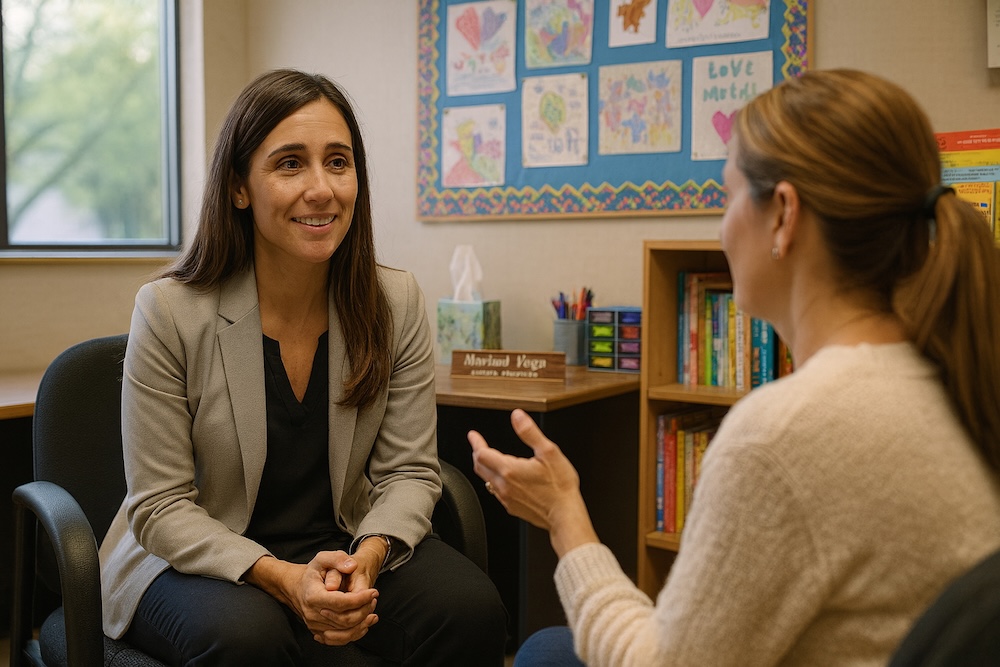
When We See Differently, Students Show Us More
This time of year, I visit my school counseling students in their practicum sites. Without fail, someone usually asks how to support a student who’s been referred to the school counseling intern by a teacher with a description such as “She has serious issues.”
When I hear this, I don’t focus on the description, I listen carefully to the words people use to describe the student.
Some students are labeled as “just trouble.”
Some are said to be “behind and doesn’t care.”
Others are described as “anxious” or “depressed.”
Listening to these problem focused questions makes our heads spin with concerns and questions of our own… how can we help so many students with so many problems?
Plus, it doesn’t take long before those problem focused words become problem focused lenses that shape everything we notice when we talk to the student. When we start from a deficit-based view, we unintentionally shrink what’s possible. We become better at spotting problems than progress. We miss the quiet signs that a student is trying… or maybe already succeeding in small ways.
And when we miss those things, hope fades for us, and for them.
But here’s the good news:
When we shift how we think about students, everything else begins to shift too.
That doesn’t mean we respond to a concerned teacher’s negative description with “oh, he has strengths.” Doing that can feel disrespectful to a teacher who is concerned and feeling inadequate. Instead, using the solution-focused approach reminds us to assume capability, not only in the student but in the teacher as well. By listening and nodding, then asking the following questions, you are empathetic and help the teacher look at the student differently:
When has this student been successful before?
When have they shown respect, curiosity, or persistence - even in small ways, or even in other classes or situations?
What might you do if you believed this student had exactly what he needs to succeed, just slightly,f or today? What might you do to help that happen, just for today?”
Thinking differently about how students are described isn’t just a mindset shift. When students are seen as capable, they often begin to see themselves that way, too, because we act differently around them. And that’s when small successes begin to unfold.
So this week, when a teacher brings you a problem-saturated story about a student, start by acknowledging their concern, thanking them for caring enough to talk, and then, gently offer a new lens to the teacher:
“Would you be willing to watch for the smallest action today that tells you this student is capable, like an experiment?”
Sometimes, all it takes to spark a solution is the courage to look through a different lens and notice what was there all along.
